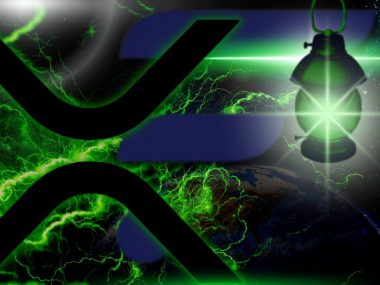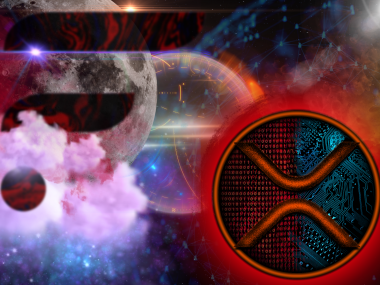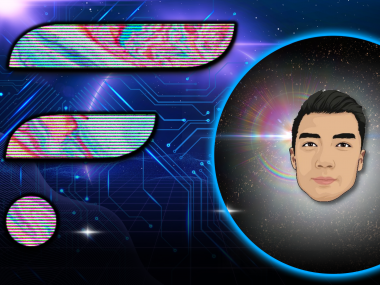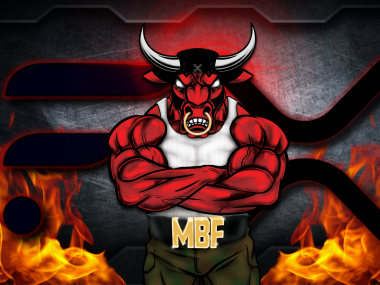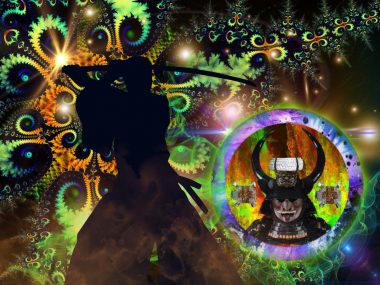We are citizens of a network.
In decentralised ecosystems where the rules of operation are transparent, we freely choose to contractually engage with unknown users. This open and permissionless world, all secured through the coordination of nodes, enforces economic structures that dictate how its network value is distributed across its citizens. Every data point relevant to the blockchain’s operations is stored in a distributed manner and without trust.
Designed by intelligent developers and shaped through the business expertise of the core team, we decide to join these networks. Through community members and researchers, we share our knowledge and the news. Then ultimately a narrative forms as to what these networks can become and how we can profit from the value accrued to these new systems.
Working decentralised applications get built, and users are having a blast. The community gets stronger, and the network gets flooded with liquidity and applications that power a new way of doing things. We think we’re changing the world by being a part of this technology.
So we begin obsessing about the tokens – those precious assets that fuel the operations of the system and we become attached to the value that each token could be worth…
Then, the state of euphoria pervades the community and the bulls have taken the court, prices rally, and the community is no longer focused on progressing this new world – but on other developments such as leaving their jobs and resolving their sense of financial lack through material or hedonistic indulgences.
With elevated emotions, our attention becomes scattered. We forget to do the hard work of “DYOR” and so we simply follow narratives, because that’s easy. Our lack of awareness blinds us to the faults and flaws of the system. Bugs begin to be uncovered. The network’s operational bottlenecks begin to take centre stage. Competition appears louder and closer. The once thought resiliency of this new world begins to collapse.
Then comes the newly formed narratives. The citizens are in disbelief. Unfavourable regulation spooks the media. Doubt and fear now pervades. Now the bears take control. Technological development has simply not caught up to the once exhilarating and utopian narrative. Inevitably, token prices fall… and quite significantly. Communities divide and the lack of hopium begins to break the will of the newcome citizens. Sentiment and activity is at its lowest. We lament on what had happened to our hard-earned time-traded fiat currencies.
Time always heals. The network continues to grow; developers keep building; education doesn’t stop by those who wear the scars of experience. We become aware again of the freedom we have to choose which world we want to live in; what rules we want to abide by; how long we want to wait before an event or transaction occurs; and how much we are willing to pay to interact with composable applications.
The community learns and moulds. With that, previous assumptions about our world get updated. Through reflecting on past chaos, we think to ourselves “who is actually governing this world?”
So we learn about governance. We want a say in how our world should be run. We realise we should act in alignment with the network’s vision but we don’t see the incentive to do so. If only there were a system where valued participation rewards us, the citizens. A world that is not exclusively controlled by those who have the most financial stake or access to stupendous amounts of energy. We’re happy to contribute, but we want to be rewarded for it. We want a place where we can put our dying fiat currencies and help build an open and fair future – but we must be rewarded for it.
So we look for a network that rewards its citizens…
We want to bring our knowledge and expertise to the system, and help fund development for applications. We want to help advertise all the cool products and services to newcomers and to businesses. Hell, we even want to make our mark in the network’s history so we acquire unique pieces of digital artworks – some of these granting us exclusive access to valuable communities. We keep searching for that network…
Then, we find the Flare Network.
We begin learning about its technology. We learn how the system comes to agree on its transactions. We learn that its consensus combines the unique rules of other thriving ecosystems. We experiment with some real value on the canary network. Everything is running smoothly. Transactions and data is processed quickly and effectively and without costing an arm and a leg.
We discover that the security of the network is not attached to its native token. We realise that each native token we hold entitles us to one vote in this world. We take the role of good citizens as we understand the entire network is run by us.
But this doesn’t happen immediately… The genius of the network gets handed down from the Flare engineers and slowly rolls out the network validators to the decentralised community, to us. We’ve waited years for the launch of this network – and now we are LIVE.
Yet, as we value decentralisation, we happily wait a few months more. We look around and find that other networks have taken years to decentralise, and some, still fall under the helm of whale dictatorship. So, in the meantime, we continue to level up our knowledge.
We learn of the massive incentives given to the Flare citizens. We begin learning about what we can do to contribute to the network. We learn about its decentralised oracle for price feeds. We find that it’s easy to delegate votes to the data providers – and we get rewarded for this if they perform well. While we’re doing this, we find that we still hold total custody of the original native token. We are contributing to the network’s price oracle at no risk. The relevance of the entitled and lazy citizens organically fade and power redistributes to us – the good citizens of the network.
We’re excited for one of the core protocols to launch where we can bring other assets to Flare and put them to work in a low-risk, high yield DeFi system. A yield-bearing home for these assets sounds much better than being locked away in cold stored wallets and behaving as pet rocks.
We plan for our foreign assets to contribute to the robustness of the system. And so, the TVL increases and is diversified across a dynamic multi-asset collateral system. We see the ripe environment for a decentralised stablecoin to be built and to complete the foundations of DeFi on Flare.
We find that we’ve been rewarded with a pile of native tokens for all the value we are bringing – all the buttons we are pressing! Our voice in this world increases. We see talented developers and teams building exciting new ecosystems on Flare. We want a piece of that Dapp’s ecosystem but we don’t want to fork out more capital to take part. So we find out of the ability to crowdfund new projects with our rewards in exchange for the project’s native tokens. We are playing with the house’s money.
We believe in other worlds talking to us and operating with each other. We learn that the original architects of Flare built a bridge to allow other smart contract networks to interoperate, and thus bringing down previous beliefs in the limitations of cross-chain environments. We find these bridges are insured by decentralised operators who get imbursed in the native tokens as well as fees from external networks.
We recognise that to truly build out a valuable system we must integrate with the real world of Web2 – the internet as we know it today. We find that Flare has a unique eye in the sky that can see all things across Web2 and Web3, and delivers that ubiquitous knowledge into the system. We really begin to imagine the possibilities branching out into new frontiers. We keep in mind though, that security and sustainability for its citizens is of utmost importance. We realise as in nature, evolution and stability takes time.
Fast forward many epochs, we find that a certain network parameter, such as the native inflation of the system, no longer needs to be where it is for the current cycle of evolution. We the citizens collectively propose that we should change said network parameter.
So we cast our votes…
We realise that our votes actually matter, so much so that Flare incentivises doing so.
This system was built for its citizens



